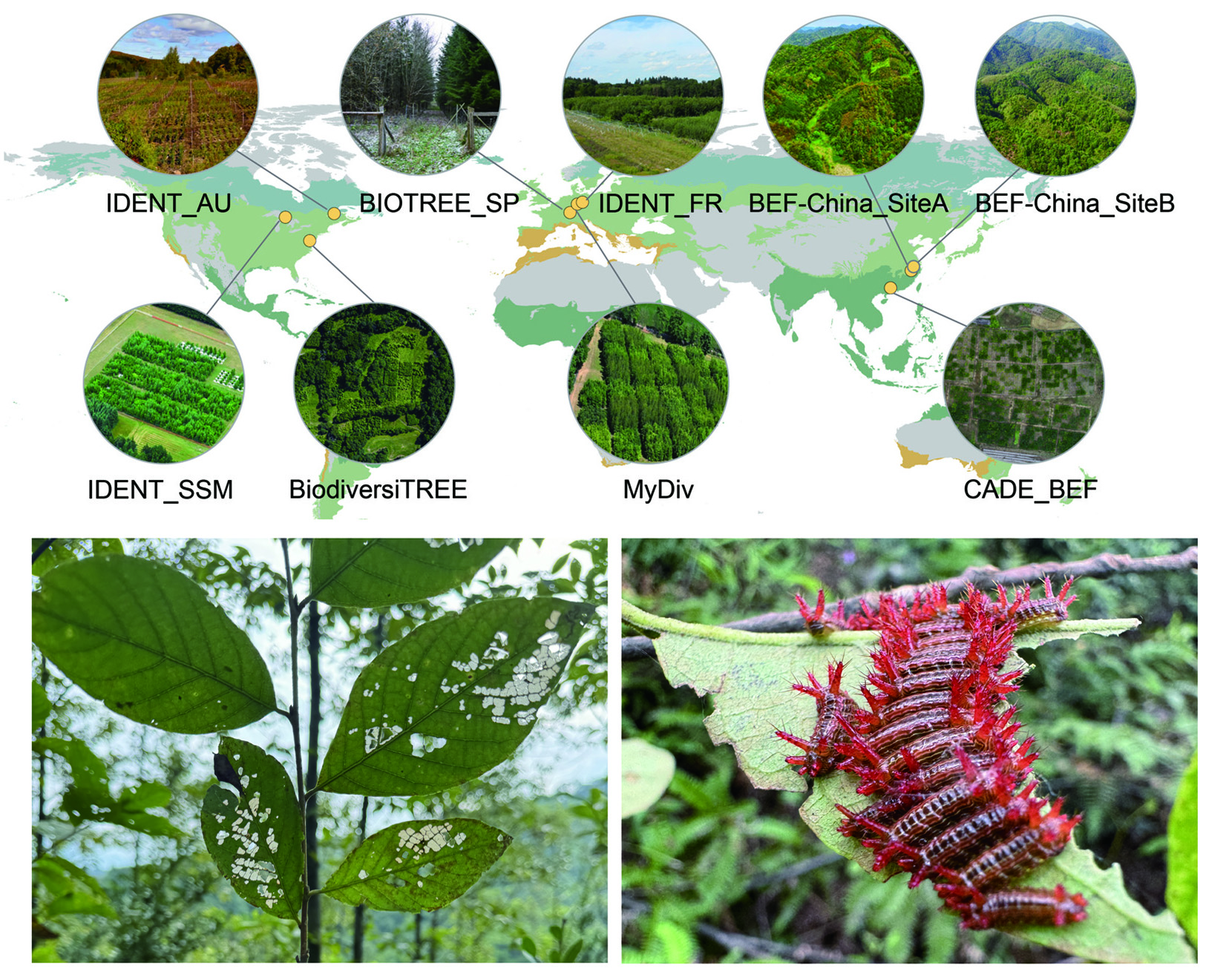
Newsroom
A new study published on Nature Ecology & Evolution has revealed a positive relationship between tree growth and insect herbivory, as well as between tree species richness and herbivory.
The researchers, led by Prof. LIU Xiaojuan from the Institute of Botany of the Chinese Academy of Sciences, analyzed data from 8,800 trees across 80 species in nine biodiversity experiments from the Tree Diversity Network (TreeDivNet) in various biomes. As forests worldwide face mounting threats from climate change, deforestation, and insect outbreaks, the study provides timely insights into the ecological dynamics that influence forest resilience.
"Our study provides critical insights into the complex dynamics of plant-herbivore interactions and offers valuable guidance for forest management and restoration strategies," said Prof. LIU Xiaojuan, senior author of the study.
The researchers found that tree species richness increased insect herbivory from individual to species to community level. Moreover, the relationship between tree growth and herbivory was strongly influenced by tree functional traits, such as leaf nutrient contents and leaf texture. Trees with certain characteristics, such as higher carbon:nitrogen (C:N) ratio and tougher leaves, are more vulnerable to herbivores as their growth rate increases.
"These findings highlight the importance of considering functional traits in understanding plant-herbivore interactions, as it suggests that efforts to promote tree growth and biodiversity may need to be tailored to the specific characteristics of the trees and the environment," said Dr. LI Yi, first author of the study.
She noted that the positive associations stem not only from increased productivity (i.e., more food resources) in species-rich environments, but also because generalist herbivores benefit from the diverse array of food sources available in such habitats.
An important next step for the researchers will be to understand how the observed relationships apply under conditions of environmental stress and insect outbreaks.
"It's important to note that our current study primarily focused on natural background rates of herbivory," said by Prof. Andreas Schuldt, a core author of the study. "Outbreaks and severe tree damage are often caused by specialized herbivores under environmentally stressful conditions, and we may see deviating effects of tree species richness in such cases."
By confirming a global pattern of positive links between tree growth, species richness, and herbivory, the study underscores the fundamental role of plant traits in ecosystem energy flow. These findings hold significant implications for understanding the intricate dynamics of plant-herbivore interactions and their fundamental role in ecosystem energy flow.

Locations of the nine forest biodiversity experiments from TreeDivNet, and insect herbivory and herbivore insects (Limacodidae, Lepidoptera) in one of the experiments (BEF-China) (Image by LI Yi)
